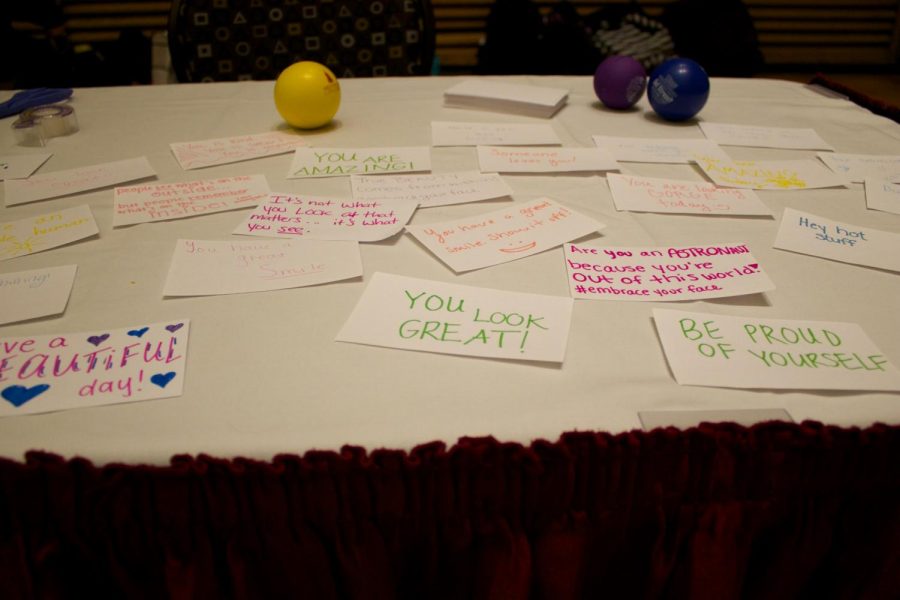Turn on your television and flip through the channels. Look at the cover pages of magazines, or open any social media application, what do you see? The glorification of the “ideal” body image.
Dating back to the late 15th century when print media was invented, books, pamphlets, magazines and newspapers have portrayed an unrealistic body image. Today, companies use advertisements to continue perpetuating this image of men with hyper-masculine features and females with “perfect” bodies to appeal to certain audiences. This has been an ongoing trend through the evolution of media that continues to be an issue in our society today.
With the advancements in television and social media, this glorification of the “ideal” body image has progressed and taken a toll on the self-esteem of individuals. Given the increasing influence of social media in our everyday lives, we — especially teenagers — are caught up in a world that depicts one’s self-worth solely as their outward appearance and physical characteristics. Social media influencers and models on magazine covers are often complicit in perpetuating this flawless body image. The modelling industry too uses Photoshop to make or dilute curves, resulting in more unrealistic definitions of beauty. Celebrities such as Zendaya, Kate Winslet and Ashley Benson are a few of the many powerful women who have spoken out against this use of Photoshop to modify bodies. Zendaya, for instance, posed for a cover spread of Modeliste magazine and was disgusted when she found out that the magazine had used Photoshop to make her body appear slimmer. In a well worded Instagram caption, she posted a side-by-side photo comparing the original image to the manipulated one and wrote, “Had a new shoot come out today and was shocked when I found my 19-year-old hips and torso quite manipulated. These are things that make women self-conscious, that create the unrealistic ideals of beauty that we have. Anyone who knows who I am knows that I stand for honest and pure self-love. So I took it upon myself to release the real pic and I love it.”
In a similar situation, Kate Winslet once spoke out about Photoshop and body manipulation by stating, “It goes against my morals, the way that my parents brought me up and what I consider to be natural beauty.” “Pretty Little Liars” actress Ashley Benson publicly called out ABC Family for releasing a manipulated image of the cast to promote the show by saying, “Remember, you are ALL beautiful. Please don’t ever try and look like the people you see in magazines or posters because it’s fake. It only causes an unhealthy mind about how you see yourself. You are perfect the way you are.”
The media often warps images and manipulates celebrities and models to convey a certain “ideal” message instead of promoting diversity, acceptance and self-love, all of which are important in guiding our community down a more positive path. While diversity has slowly increased in television and retail companies, much still remains to be done in regards to body image. Old Navy, for instance, provides plus size clothing and markets their products by celebrating the natural beauty of diverse bodies in their commercials, ads and photoshoots.
Unrealistic views of body image is also a serious issue in the film and television industry and has severe impacts on the self-confidence of many teenagers. For instance, TV shows that are directed to a teenage audience often star actors and actresses who are in their 20s or 30s portraying the role of a teenager. Teenagers look at these shows and wonder why their bodies don’t look like the ones they see on screen. “Riverdale” actress Lili Reinhart is a 23-year-old who plays the role of a 16-year-old high school student. There has been backlash from the audience about the actresses and actors chosen to play these roles as it perpetuates an unrealistic body image of teenagers. Recently, Reinhart spoke out about body image and her own self confidence issues by stating, “even I feel intimidated by the physique of my surrounding cast mates sometimes when I have to do bra/underwear scenes. I’ve felt very insecure due to the expectation that people have for women on TV, what they should look like.”
Today, different media platforms are beginning to promote natural beauty and diversity, but the “ideal” body image continues to dominate self-love and acceptance. It is important, especially for teenagers, to be comfortable within their body. Each individual is unique, special and one of a kind. Everyone is beautiful just the way they are and nobody should change themselves to live up to the beauty standards that the media glorifies.
Jillian Bamdas is a Collegian contributor and can be reached at [email protected].



















